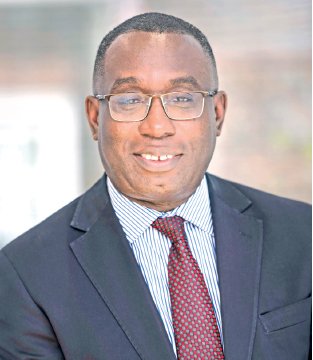The new CIMA syllabus was launched today in Colombo by Dr. Noel Tagoe, Executive Vice President – Research & Curricula Management Accounting, The Association of International Certified Professional Accountants.
The event was attended by members, academics, lecturers and invitees. Most finance teams and professionals are not evolving their skills fast enough to account for the impact of artificial intelligence, robotic process automation and other technologies, according to Re-inventing finance for a digital world, a study released today by the Chartered Institute of Management Accountants (CIMA).
The majority (over 50 percent) of finance leaders globally say the competencies of their teams must “change significantly” over the next three years as new technologies take over traditional tasks. The upside: businesses expect a stronger focus on value creation with the automation of repetitive tasks. Expertise in areas such as data analytics, cyber risk management and business models will facilitate the shift. Supporting this, will also be the need for a shift in mindset to constantly learn, unlearn and relearn new skills to deal with complexity and operating in an increasingly agile environment.
The research revealed that: 61 percent of finance professionals surveyed expected over 20 percent of finance tasks will be automated in next 3 years, Over half (55 percent) have already seen a move towards “somewhat” automated processes, Yet hindsight reporting, for instance, still makes up 65 percent of a finance team’s report output. This research draws an insight from more than 5,500 finance professionals across 2,000 public and private organisations of all sizes in 150 countries.
Andrew Harding, FCMA, CGMA, Chief Executive, Management Accounting, said: “Technology is bringing us change at an unprecedented speed and scale. Organisations must constantly enhance their capabilities to seize new opportunities and remain viable.
“For finance professionals it is no different. The changing environment represents a huge opportunity for them to go beyond their core technical comfort zone and embrace emerging technologies as a way to deliver value across their organisations. However, to rise to the challenge, they will need to hone new skills and competencies to stay employable and competent for a digital world.
“Building on our 100 years heritage of leading the management accounting profession, we launched an enhanced CIMA Professional Qualification, CGMA Competency Framework and Digital Mindset continuing education course to give finance professionals, members and students the tools and resources they need to thrive in this digital age. We will – as we always have done – help finance professionals reach their full potential.”
The research findings and response complement additional research launched this month by the Association of International Certified Professional Accountants (the Association) – the unified voice of CIMA and the American Institute of CPAs (AICPA) – and Oracle, which found that 90% of finance teams to do not currently have the skills to support digital transformation and support the business’s ability to grow and make better corporate decisions.
Here are the details of the updates CIMA is making to its learning resources:
• The updated CIMA Professional Qualification, which focuses extensively on digital finance to deliver finance professionals who can harness the full power of technology and data to create and add organisational value while supporting businesses to mitigate new risks, including cybersecurity threats.
• An updated CGMA Competency Framework, which both adds and incorporates the new area of digital skills to the four core existing knowledge areas of technical, business, leadership and people skills.
• The Digital Mindset professional development course to enhance competencies and skills through a free CPD Bundle based on automation, blockchain, cybersecurity, data analytics, and ethics.



Add new comment